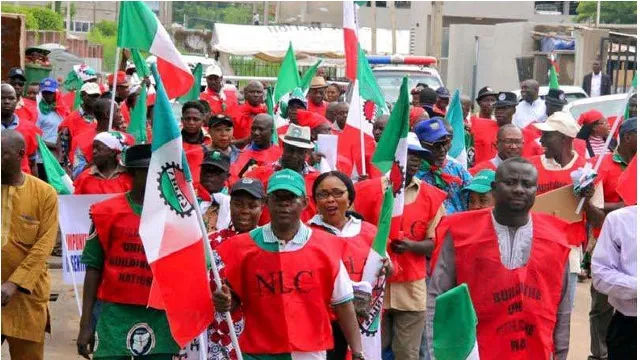The Nigeria Labour Congress in the Northwest zone has proposed N485,000 as new National Minimum Wage for workers in the country.
The News Agency of Nigeria (NAN) reports that proposal was contained in a position paper presented on Thursday at North West Public hearing.
The hearing was on the Tripartite Committee on National Minimum Wage held at the Coronation Hall, Government House, Kano.
The Kano State Chairman of the congress, Mr Kabir Inuwa, made the presentation on behalf of the North West leadership.
He said the proposal of N485,000 was necessary, considering the dynamics of the national economy.
“It is imperative to propose a
new minimum wage that reflects the cost of living and ensures a decent standard of living for workers.
“The proposed new minimum wage per month should be determined through a comprehensive assessment of the current economic conditions, inflation rates, and basic needs of workers and their families.
“The congress is of the opinion that for any minimum wage to achieve its purpose, it must reflect realities of the economic situation and accordingly assess the least income that would be sufficient for survival of a family of six,” Inuwa said.
According to him, it is the estimated monthly expenditure per household (comprising father, mother and four children).
The NLC boss noted that the minimum wage act had given all the protection required to ensure compliance.
“This may be initiated by an individual or trade unions. The lack of awareness on the existing laws constitutes rampant contravention of the law, most especially by some state and local governments.
“If the labour unions can initiate a mechanism to explore the provision of the law, it would record minimum defaults,” he said.
He, therefore, stressed the need for the intervention of the Federal Government to ensure compliance through withholding all allocations to any state or public institutions that contravened the minimum wage law.
“The removal of fuel subsidy and Forex policy came at a time when Nigeria’s
minimum wage is matured for review.
“The attendant effect of the current economic hardship propelled by hyperinflation renders workers vulnerable,” he said. (NAN)



